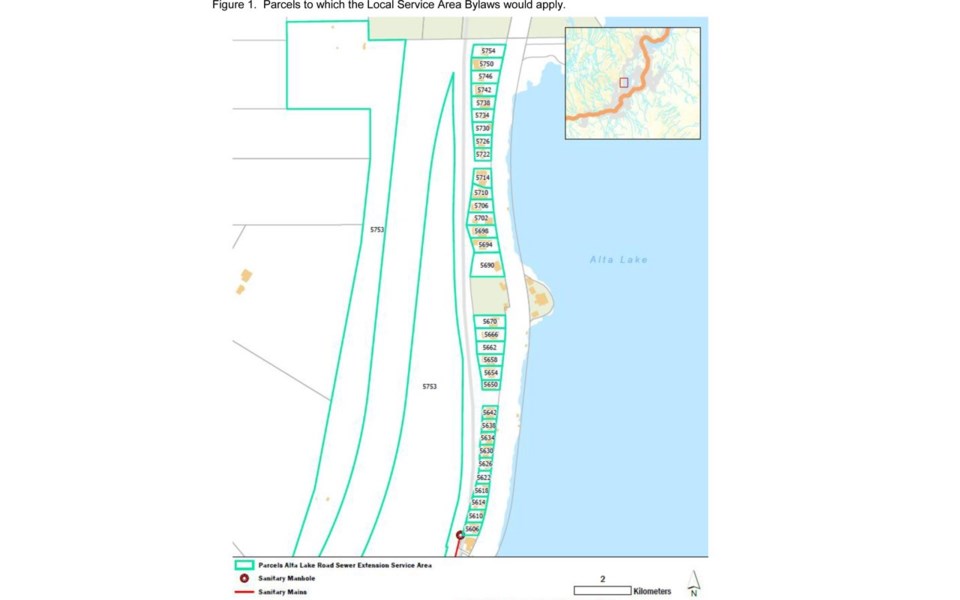
The Resort Municipality of Whistler (RMOW) is moving ahead with a long-delayed project to add 33 homes on Alta Lake Road to the municipal sewer system.
At its Oct. 8 meeting, council gave staff permission to proceed with the project.
"There are a number of drivers for the sanitary sewer completion," said utilities group manager Gillian Woodward in a presentation to council.
"Top of mind is of course the environmental and health concerns, and that relates primarily to the fact that a number of properties have septic treatment systems along this part of the shoreline and that those are prone to failure over time."
Recent sampling on the shore of Alta Lake found E. coli bacteria at three of 11 sampling sites, Woodward said, adding that the RMOW has been given further steps that need to be taken.
"Fecal coliforms, E. coli can come from dogs and other animals, so the consultant is recommending that something like dye testing take place," she said, adding that the testing will be administered by Vancouver Coastal Health.
Staff is recommending a "linear process" for the work in order to finish it quickly and with minimal costs.
A preliminary design already exists, but a request for proposals will be issued for the detailed design.
Once the detailed design is finished, the cost estimate needs to be revisited before bylaws are prepared for council's consideration (likely in August 2020).
Construction is targeted for 2021.
The current five-year financial plan includes $3.7 million for the project from 2019 to 2022.
The total cost has been proposed as a 50-per-cent cost share between the property owners and RMOW, with the municipality's share coming from the sewer capital reserves.
Previous estimates have placed the cost to individual homeowners at between $12,000 and $60,000 (read more in Pique, Aug. 13, 2015: "Multi-million dollar sewer project for Whistler homes 'smells bad'")—but actual costs will vary by property.
"This is a very complex project because there's a significant amount of private parcel costs that need to be invested, and every parcel is different because of where homes have been located on their particular parcels," Woodward said.
"So that's one of the reasons it's a difficult project to get consensus on, because some people are going to pay not only for the cost share but a significant amount more for their particular home to be connected to the sanitary sewer line."
The private parcel costs are from the property line to the house, as well as the installation of a pump station if needed, she added.
Three RMOW properties also need to be connected to the sewer system, including Rainbow Park and The Point Artist-Run Centre. While The Point is included in the five-year capital plan, Rainbow Park is not, Woodward said, as that connection alone is estimated to cost $1 million.
The cost to connect The Point is "solely an RMOW cost; it's not shared by anybody else," said general manager of infrastructure James Hallisey.
A formal petition for the bylaws was sent to affected properties in May. As the properties that returned the petition represented more than 50 per cent of the affected properties and more than 50 per cent of the total property value, the petition was given a certificate of sufficiency by the municipal clerk.
Seven grants have been applied for to assist the project (most recently in 2014)—all unsuccessful.
"The proposal is to stay alive to any grant opportunities until such a time as we put shovels in the ground. I'm supportive of that effort," said Mayor Jack Crompton.
"If there's anything we can do to get behind it, let us know."
Efforts to hook the last remaining homes in Whistler up to the sewer system date back to at least 2004.
The RMOW estimates about $400,000 has been spent since then on consulting fees, design, cost estimation, environmental studies and preparation of grant applications.



